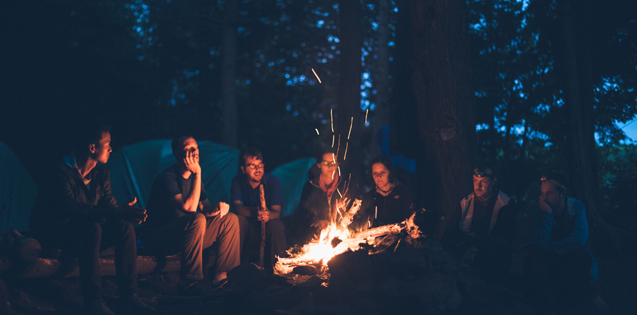I used to be so shy and worried about the opinions of others that I’d become a spineless blob of yogurt around anyone I wanted to like me. You should have seen me on “dates.” I still have interactions like that every now and then, especially if I’m with someone I want to ask out. But since about ten years ago, I started having the opposite problem. Now, I keep forgetting the names of those I’ve had good conversations with because I end up meeting so many new people each week.
Something along the line changed me. Dale Carnegie’s How to Win Friends and Influence People helped frame conversations in terms of what I could give to people instead of what I could get from them. After all my conversations I want other people to feel better about themselves. Conversations and careful listening are ways we can actually serve one another. Ultimately, you can give to others by the way you converse with them.
When I’m trying to give encouragement or affirmation instead of seeking to get validation, I have more confidence in approaching people, and many first-time interactions turn into friendships. But how does that happen? How do you turn an anxiety-filled interaction into a relationship? Well, I think questions are a great place to start. A friend recently shared some advice she’d been given on conversing with others: “The easiest way to love people is to find out what they’re excited about and ask them questions.”
Instead of wasting time talking about the weather, we can seek to hear about other people’s passions — and then get excited with them. But it’s not always easy. Because we’d never want to be disingenuous about it, I do have a little hack for interacting with people who don’t seem interesting. If my memory from sophomore English serves me well, Annie Dillard’s Pilgrim at Tinker Creek talks about cultivating an appreciation for the smallest of things:
It is dire poverty indeed when a man is so malnourished and fatigued that he won’t stoop to pick up a penny. But if you cultivate a healthy poverty and simplicity, so that finding a penny will literally make your day, then, since the world is in fact planted in pennies, you have with your poverty bought a lifetime of days.
To adjust for inflation, I might modify pennies to be quarters (and then for my purposes you have to replace quarters for people), but this is essentially what I learned from it: If we can set aside competition, pride and insecurity, we can appreciate even the most uninteresting person for the sheer miracle it is to be human. And when we treat people as rare and precious creations, the whole act of meeting and talking becomes a lot more enjoyable.
But our conversations don’t have to only center around how the other person is interesting (though each of us is interesting, so there’s plenty of material there), we can also intentionally work on affirming the gifts and talents in others, a topic Karina reinforces in her blog for this week.
Isn’t it always the old ladies who do this best? Pastors’ wives, friends’ moms, grandmas. I recently heard a story of a friend who refused to work hard in elementary school, and one day she bombed a spelling quiz. As the teacher handed back her graded quiz, she said, “You’re smarter than this. Start acting like it.” My friend thought, I am smarter than this — and it was honor roll from there on out. Maybe don’t tell someone you just met to start acting smarter, but do seek to identify the strengths in others, and who knows what difference that could make in their lives.
After only a few hours together at an orientation for my seminary, one of my classmates told me, “You have a real gift for engaging people.” That’s one of the few things I remember from that weekend, and it’s really empowered me to hone these listening skills so I can better minister to people.
How many people in our daily lives have gifts that are fading because they haven’t been recognized and called out? The next time you enter a room and you feel fear of rejection pushing you back into your shell, remember this: You have nothing to lose … because you are here to give.
(And then try extra hard to remember the names of all the people you meet.)












